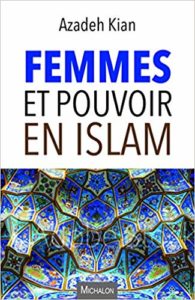 The massive participation of women in the revolutions in the Middle East and Maghreb has led to a change in their image in public opinion and the Western media. But Western-centrism, based on the primacy of difference, continues to clutter some feminist discourses. Exploring the issue of women and power in Islam with a particular focus on the Middle East, Azadeh Kian offers an overview of four historical periods: the advent of Islam, the medieval period, and the modern and contemporary period.
The massive participation of women in the revolutions in the Middle East and Maghreb has led to a change in their image in public opinion and the Western media. But Western-centrism, based on the primacy of difference, continues to clutter some feminist discourses. Exploring the issue of women and power in Islam with a particular focus on the Middle East, Azadeh Kian offers an overview of four historical periods: the advent of Islam, the medieval period, and the modern and contemporary period.
The history of Muslim-majority societies shows that women enjoyed authority there because of their religious, poetic, literary, scientific, political and military knowledge.
They have tried to influence, challenge or subvert the male-dominated social structure that Islamic laws have consolidated, so it is not Islam that hinders the emancipation of women, but its instrumentalization by men who seek to preserve privileges and powers. Should we not therefore reject the rigid and traditionalist reading of the Koran and reinterpret sacred texts and Islamic laws? Through the historicalization and contextualization of Islam, feminist activists and women’s rights activists have opened up Koranic and jurisprudential exegeses to alternative readings and interpretations aimed at restoring equality between men and women.
This essay, based on bibliographic and field research, puts into perspective the place and power of women within Islam.
Order book in French HERE


